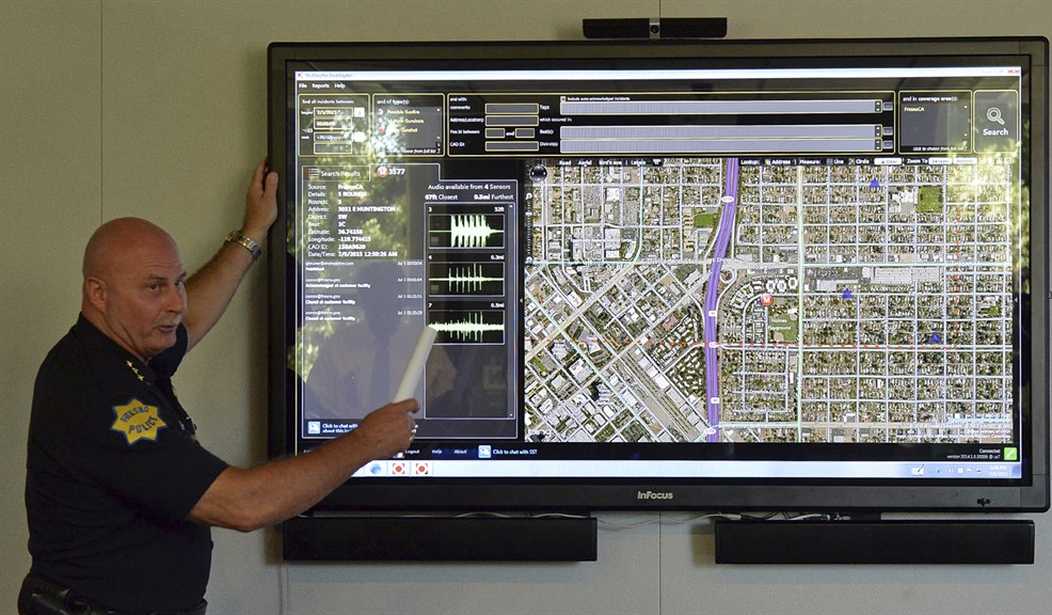In case you’re not already familiar with ShotSpotter technology, it’s a system subscribed to by hundreds of police precincts around the country. The company installs a series of listening devices in high-crime areas which are able to (usually) distinguish the sound of gunfire from other urban noises and automatically notifies the police so they can dispatch someone to the scene. But the system has more than its share of critics, mostly from progressive, anti-cop organizations who find it to be too intrusive. Others claim that it’s not effective enough to justify the price. Those are some of the points being raised in an NBC News report this week, where they also claim that the company holds too much influence and employs lobbyists to convince Congress to approve grants to help police precincts afford their product and they “use” police precincts as de facto salespeople by seeking their endorsements.
In an examination of ShotSpotter’s business activities — how it attracts new clients while fending off calls for police to drop the technology — NBC News found that the company exerts influence at both ends of the federal money pipeline, lobbying Congress and federal agencies for grants and other spending programs that can be used to pay for its products, while also shepherding local police departments through the process to obtain that money.
The company has used police departments as vehicles in its efforts to fight back against critical studies and media coverage, asking law enforcement agencies to provide “success stories” that it shares with prospective clients.
ShotSpotter is not alone in this race for lucrative police contracts, and the company’s efforts don’t appear to cross any legal or ethical boundaries, experts said. Dozens of police technology companies compete to provide an array of expensive services, from body cameras and facial recognition software to dispatch systems and radios.
The linked report is a rather lengthy article, but even after reading the entire thing, I was unsure exactly what NBC’s big complaint about the company or its technology is. Certainly, the system isn’t foolproof and it may register the occasional false positive, but no technology like that could possibly hit 100% accuracy. And what’s the harm if it does produce a false positive? The police wind up sending a squad car to investigate and if there was no shooting, they move on.
NBC also complains about the company’s successful efforts to lobby Congress to approve grants helping law enforcement agencies purchase the technology, as I mentioned above. But as NBC freely admits, many companies that sell goods and services to either law enforcement or the military employ lobbyists in the same fashion. That’s just good marketing. The linked report even goes on to admit that the company’s promotional efforts “don’t appear to cross any legal or ethical boundaries.”
NBC interviewed one police chief who originally felt that the technology wasn’t worth the price tag and they go on to note that ShotSpotter reports rarely if ever show up as evidence in criminal trials. But would you really expect them to? All this system does is alert law enforcement that shots may have been fired. It doesn’t prove that a crime has taken place or identify the shooter. The police still have to go collect the evidence and do that work as they would in any investigation. By the time you get to the prosecution stage, the mere fact that shots were fired has already been established and generally won’t need to be proven in court.
So what’s the major complaint being registered against ShotSpotter? Yes, it’s expensive, but that sort of technology rarely comes cheaply. One police chief they interviewed said that a series of surveillance cameras would be more useful. I’m sure that’s true, but they also tend to be more expensive to install, maintain, and monitor. And as soon as you install cameras you will have liberals complaining about the surveillance state, image recognition, and all the rest. ShotSpotter is just listening for gunshots in high-crime neighborhoods. How anyone finds this objectionable is beyond me.









Join the conversation as a VIP Member